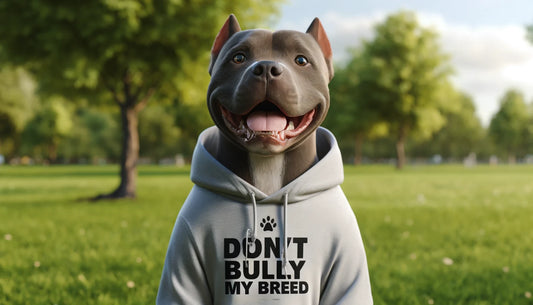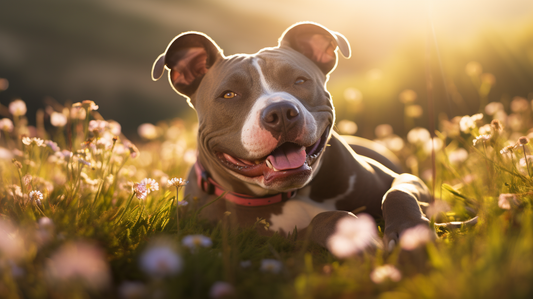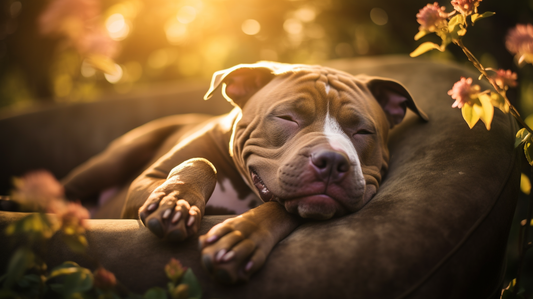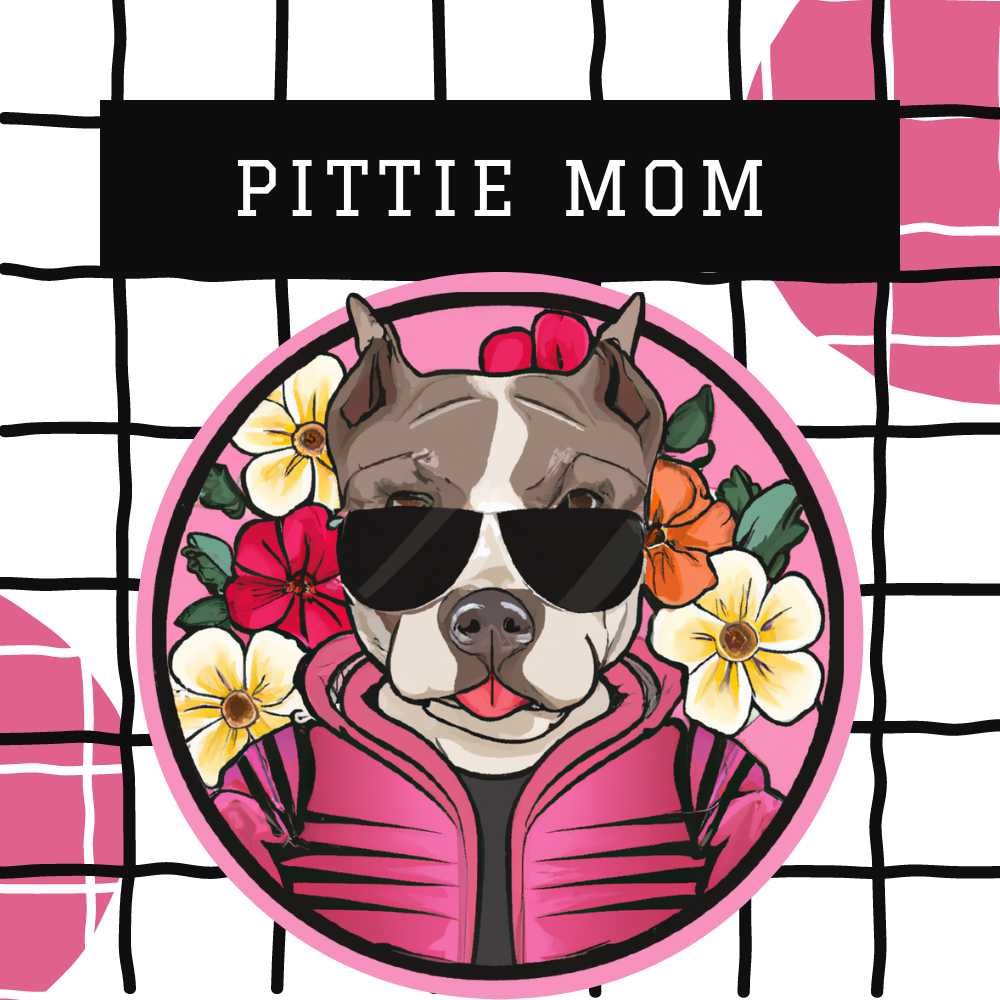Why Are Pitbulls Clingy? Understanding the Affectionate Nature of Pitbulls
Tom Drachman- Pittie Choy
- Pit Bull Training & Behavior
- Why Are Pitbulls Clingy? Understanding the Affectionate Nature of Pitbulls
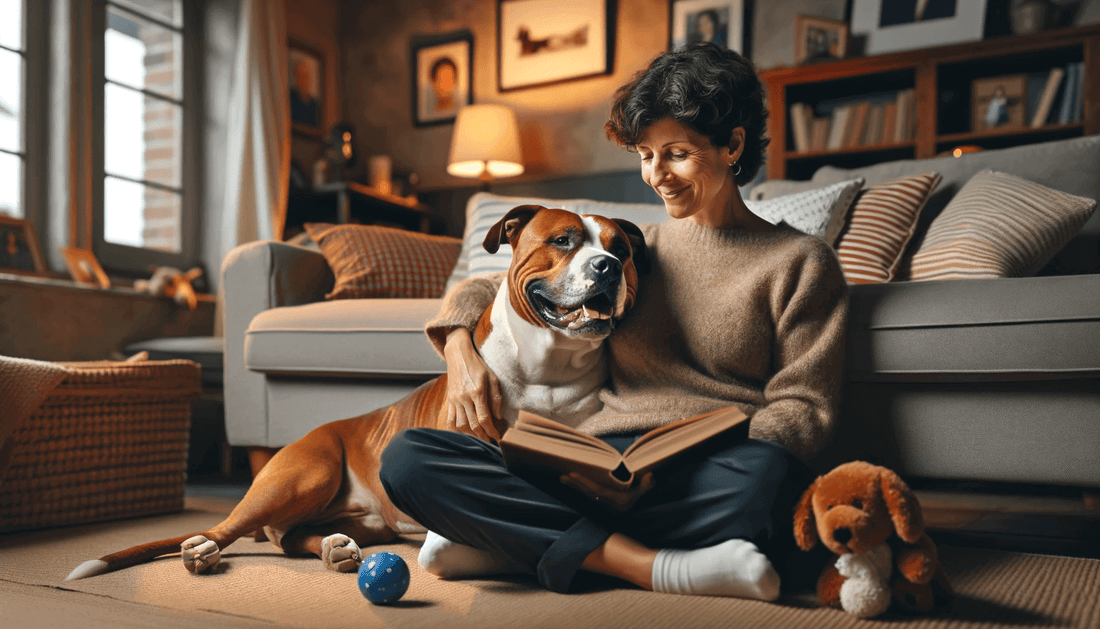
Table of Contents
- Introduction to Pitbulls' Clingy Behavior
- Exploring the Roots: Why Are Pitbulls So Clingy?
- The Genetic Perspective
- Historical Influence
- The Role of Environment and Upbringing
- Understanding Their Emotional Depth
- Pitbulls as Velcro Dogs: A Sign of Affection
- Defining the Velcro Dog Phenomenon
- Why Pitbulls are Often Labeled as Velcro Dogs
- The Positive Aspects of Being a Velcro Dog
- The Bond Between Pitbulls and Their Owners
- Embracing the Velcro Dog Trait
- The Emotional Connection: Why Are Pitbulls So Loving and Affectionate?
- Innate Emotional Sensitivity
- The Impact of Breeding on Affectionate Traits
- Pitbulls’ Response to Positive Reinforcement
- The Role of Socialization in Developing Affectionate Behavior
- Pitbulls as Empathetic Companions
- The Joyful Nature of Pitbulls
- Understanding Separation Anxiety in Pitbulls
- Defining Separation Anxiety in Dogs
- Signs and Symptoms in Pitbulls
- Why Pitbulls May Develop Separation Anxiety
- Strategies to Manage Pitbull Separation Anxiety
- Are Pitbulls Needy? Differentiating Between Neediness and Affection
- Understanding Neediness in Dogs
- Pitbulls: Affectionate, Not Needy
- Recognizing Healthy Attachment in Pitbulls
- Addressing Over-Attachment Issues
- The Role of Socialization and Training in Managing Clingy Pitbulls
- Importance of Early Socialization
- Socialization Techniques for Pitbull Puppies
- Training Tips to Manage Clingy Behavior
- The Role of Consistency
- Seeking Professional Help
- Comparing Clinginess in Pitbulls to Other Breeds
- Clinginess in Pitbulls vs. Other Breeds
- Understanding Breed-Specific Traits
- Pitbulls: Emotional Connection vs. Need for Activity
- Clinginess and Separation Anxiety Across Breeds
- The Role of Individual Personality
- Addressing Common Concerns: Are Pit Bulls Too Clingy for Families?
- Pitbulls' Clinginess in a Family Setting
- The Positive Aspects of Pitbulls in Families
- Balancing Attention and Independence
- Debunking Myths About Pitbull Clinginess
- Suitability of Pitbulls for Different Family Environments
- Conclusion: Embracing the Affectionate Nature of Your Pitbull
Introduction to Pitbulls' Clingy Behavior
Pitbulls, with their sturdy frames and expressive eyes, often carry a reputation that doesn't quite capture their true nature. Beyond the stereotypes, these dogs are known for a trait that surprises many: their clinginess. But why are Pitbulls so clingy? This question not only piques the curiosity of Pitbull owners but also offers a window into the profound emotional world of these affectionate dogs.
At first glance, the clinginess of Pitbulls may seem puzzling or even concerning to some. However, understanding this behavior is essential to appreciating the unique bond they share with their owners. Pitbulls, often misunderstood and misrepresented, exhibit clinginess as a sign of their deep-rooted loyalty and desire for companionship. Far from being a negative trait, their need for closeness can actually be a testament to the strong emotional intelligence and loving nature inherent in the breed.
In this exploration of why Pitbulls are so clingy, we will delve into various aspects of their behavior. From genetic predispositions to emotional needs, and from historical backgrounds to their role as 'Velcro dogs', we aim to shed light on this endearing characteristic. This understanding is not just for those who are considering bringing a Pitbull into their family, but also for seasoned Pitbull owners who wish to deepen their relationship with their loyal companions.
So, let's embark on this journey to discover the heartwarming reasons behind the clingy nature of Pitbulls, and in doing so, perhaps debunk some of the myths surrounding these wonderfully affectionate dogs.

Exploring the Roots: Why Are Pitbulls So Clingy?
To truly understand why Pitbulls exhibit such clingy behavior, it's important to delve into their roots, examining both their genetic makeup and historical background. These elements play a significant role in shaping the personality traits of Pitbulls, including their tendency to form strong, affectionate bonds with their human companions.
The Genetic Perspective
Genetically, Pitbulls are descended from breeds that were selectively bred for various purposes, including companionship. This selective breeding has ingrained in them a strong desire for human interaction and approval. Unlike breeds that were developed for more independent roles, such as hunting or herding, Pitbulls were often bred to work closely with people, which necessitates a strong bond with their human handlers. This historical context has led to a breed that not only thrives on human companionship but actively seeks it out, often resulting in what we perceive as clingy behavior.
Historical Influence
Historically, Pitbulls have been companions, guardians, and family members. This close association with humans over generations has fostered in them an innate sense of loyalty and a need to be near their human family. In the past, being close to their owners meant security, companionship, and survival, which has translated into a natural inclination to stay close to their human family members in modern times.
The Role of Environment and Upbringing
The environment in which a Pitbull is raised also plays a crucial role in their development. Pitbulls raised in loving, attentive environments where their emotional needs are met are more likely to exhibit clingy behavior as a positive expression of their bond. In contrast, Pitbulls that have experienced neglect or isolation may develop clinginess as a response to their earlier lack of stable companionship.
Understanding Their Emotional Depth
Pitbulls are known for their emotional depth. They are sensitive dogs who often mirror the emotions and energy levels of their owners. This emotional attunement makes them particularly adept at reading human emotions and responding to them, often with a desire to offer comfort or companionship. This sensitivity is a double-edged sword; it allows them to form deep bonds but also makes them more prone to anxiety and stress when separated from their loved ones.
In conclusion, the clinginess observed in Pitbulls is a complex trait, rooted in their genetics, historical roles, and emotional nature. Understanding these factors helps us appreciate why Pitbulls are so eager to form close, affectionate relationships with their human families. It's not just a behavioral quirk; it's a manifestation of their deep-seated need for companionship and loyalty.

Pitbulls as Velcro Dogs: A Sign of Affection
The term "Velcro dog" is often used to describe breeds like Pitbulls that exhibit a strong desire to stay close to their owners. This label, far from being negative, highlights a significant aspect of the Pitbull's personality: their profound capacity for affection and loyalty. In this section, we'll explore what it means for Pitbulls to be Velcro dogs and how this characteristic is a clear sign of their loving nature.
Defining the Velcro Dog Phenomenon
A Velcro dog is one that prefers to be by their owner's side as much as possible. This behavior is characterized by following their owners around the house, a desire to be involved in all activities, and showing signs of distress when separated. Pitbulls, renowned for their clinginess, fit perfectly into this category. They are known for their tendency to 'stick' to their owners, much like Velcro, hence the term.
Why Pitbulls are Often Labeled as Velcro Dogs
Pitbulls' reputation as Velcro dogs stems from their deeply ingrained pack mentality. In the wild, canines are social animals that thrive in groups, and this trait is still strong in domestic dogs. Pitbulls, in particular, have a robust need for social interaction and bonding, which drives them to seek constant companionship. Their clinginess is not a sign of insecurity or neediness but rather a manifestation of their love and loyalty.
The Positive Aspects of Being a Velcro Dog
While some may view a Velcro dog's behavior as overly dependent, there are many positive aspects to this trait. For one, it fosters an incredibly close and empathetic relationship between the dog and its owner. Pitbulls' ability to tune into their owners' feelings and provide comfort is unparalleled. Their constant presence can be reassuring and comforting, especially for people who live alone or those who suffer from anxiety or depression.
The Bond Between Pitbulls and Their Owners
The clingy nature of Pitbulls often leads to a strong, almost inseparable bond between them and their owners. This bond is built on mutual trust, love, and understanding. Owners of Velcro dogs like Pitbulls often report a unique sense of connection with their pets, as these dogs are always there to offer affection, support, and companionship.
Embracing the Velcro Dog Trait
For prospective and current Pitbull owners, understanding and embracing this Velcro dog trait is crucial. It's important to recognize that their Pitbull's desire to be close is a sign of their affection and commitment. By accepting and nurturing this trait, owners can enjoy a deeply rewarding and loving relationship with their Pitbulls, marked by an unbreakable bond of loyalty and affection.
In summary, the characterization of Pitbulls as Velcro dogs is a testament to their affectionate and loyal nature. This clinginess is not just a behavioral trait but a profound expression of their love and desire for companionship. Understanding and embracing this aspect of their personality allows owners to fully appreciate the depth of the bond they share with their Pitbulls.

The Emotional Connection: Why Are Pitbulls So Loving and Affectionate?
Pitbulls are not only known for their clingy behavior but also for their exceptionally loving and affectionate nature. This section delves into the reasons behind their emotional depth and how it translates into the affection they generously offer.
Innate Emotional Sensitivity
Pitbulls possess an innate emotional sensitivity that sets them apart. This sensitivity allows them to form deep, meaningful connections with their human counterparts. They are exceptionally adept at picking up on human emotions and often respond with a comforting presence. This emotional attunement is a key reason why Pitbulls are so loving and affectionate; they sense the need for affection and respond in kind.
The Impact of Breeding on Affectionate Traits
The history of Pitbulls as a breed plays a significant role in their affectionate nature. Initially bred for various roles that required close human interaction, Pitbulls developed a natural inclination to bond with humans. This breeding history has endowed them with traits like loyalty, empathy, and a desire for companionship. These traits contribute significantly to their loving demeanor.
Pitbulls’ Response to Positive Reinforcement
Pitbulls, like many dogs, thrive on positive reinforcement. When their affectionate behaviors are met with positive responses from their owners, they are encouraged to continue this behavior. This reinforcement creates a feedback loop, where Pitbulls offer affection and receive love in return, strengthening their bond with their owners and reinforcing their loving nature.
The Role of Socialization in Developing Affectionate Behavior
Socialization plays a pivotal role in shaping a Pitbull's temperament. Pitbulls that are well-socialized from a young age tend to be more open and affectionate. Exposure to different people, environments, and situations helps them develop confidence and a comfortable demeanor around humans, fostering their loving nature.
Pitbulls as Empathetic Companions
Pitbulls have an uncanny ability to empathize with their owners. They often seem to understand when their owners are going through tough times and offer their presence as a source of comfort. This empathy cements their status as not just pets, but as compassionate and affectionate companions.
The Joyful Nature of Pitbulls
Finally, the sheer joy and zest for life that Pitbulls exhibit play a significant role in their affectionate behavior. They tend to approach life with enthusiasm and a positive attitude, which is infectious and endearing. This joyfulness often manifests in affectionate gestures like cuddling, licking, and tail wagging, all signs of their loving disposition.
In conclusion, the loving and affectionate nature of Pitbulls is a multifaceted trait, influenced by their emotional sensitivity, breeding history, response to positive reinforcement, socialization, empathy, and their inherently joyful disposition. These factors combine to make Pitbulls not only clingy but also incredibly loving and affectionate companions, capable of forming deep and enduring emotional connections with their owners.

Understanding Separation Anxiety in Pitbulls
Separation anxiety is a common issue in dogs, and Pitbulls, with their deep attachment to their owners, can be particularly susceptible. This section explores what separation anxiety looks like in Pitbulls, why it occurs, and how it is linked to their clingy behavior.
Defining Separation Anxiety in Dogs
Separation anxiety in dogs is characterized by stress and behavioral problems that occur when they are separated from their owners. This condition is more than just a mild discomfort; it can manifest in various distressing behaviors. Dogs with separation anxiety might excessively bark, destroy furniture, have accidents indoors, or show signs of depression when left alone.
Signs and Symptoms in Pitbulls
In Pitbulls, signs of separation anxiety can be quite pronounced due to their strong bond with their owners. Common symptoms include excessive drooling, pacing, whining or barking when the owner prepares to leave, destruction of objects, attempting to escape, and in some cases, self-harm. These behaviors are indicators of the deep distress that a Pitbull experiences in the absence of their loved ones.
Why Pitbulls May Develop Separation Anxiety
The root of separation anxiety in Pitbulls often lies in their need for constant companionship and affection. Being bred for close human interaction, they might struggle with being alone, feeling abandoned or insecure when their owners are not around. Additionally, changes in routine, previous traumatic experiences, or lack of proper training and socialization can contribute to the development of separation anxiety in Pitbulls.
Strategies to Manage Pitbull Separation Anxiety
- Gradual Desensitization: Slowly acclimate your Pitbull to being alone. Start with short durations and gradually increase the time spent alone.
- Creating a Safe Space: Provide a comfortable, secure area where your Pitbull feels safe when you're not home. This can be a crate or a specific room.
- Mental Stimulation: Engage your Pitbull's mind with puzzle toys or treat-dispensing toys to keep them occupied when alone.
- Exercise: Adequate physical exercise can help reduce anxiety levels in Pitbulls.
- Routine Consistency: Keeping a consistent daily routine helps reduce anxiety by providing predictability for your Pitbull.
- Professional Help: In severe cases, consulting a veterinarian or a professional dog trainer can provide tailored strategies to manage separation anxiety.
Understanding and addressing separation anxiety in Pitbulls is crucial for their well-being. This condition is not just a behavioral problem but a genuine expression of their emotional distress. By recognizing the signs and implementing effective management strategies, owners can help their Pitbulls cope with separation anxiety, ensuring a happier and healthier life for their beloved companions.

Are Pitbulls Needy? Differentiating Between Neediness and Affection
The clingy nature of Pitbulls often raises the question: are they just affectionate, or are they needy? Understanding the difference between neediness and affection is crucial in providing the right care and training for Pitbulls. This section aims to clarify these concepts and help owners recognize healthy attachment in their pets.
Understanding Neediness in Dogs
Neediness in dogs refers to a dependency that goes beyond normal companionship. It is often characterized by constant attention-seeking behaviors, an inability to remain calm when left alone, and a lack of independence. Neediness can stem from various factors, including lack of training, insecurity, or past trauma. It's important to address neediness as it can lead to behavioral issues and stress for both the dog and the owner.
Pitbulls: Affectionate, Not Needy
Pitbulls are inherently affectionate and thrive on companionship. Their desire to be close to their owners is a sign of their loyalty and love, rather than neediness. Unlike needy behavior, which is driven by anxiety and insecurity, a Pitbull's affection is grounded in their social nature and desire to be part of the family. They express their love through physical closeness, like cuddling or following their owners around, which should be seen as a positive aspect of their temperament.
Recognizing Healthy Attachment in Pitbulls
Healthy attachment in Pitbulls is characterized by a balance between affection and independence. Signs of a healthy attachment include:
- Being comfortable and relaxed when the owner is around.
- Engaging in normal activities like eating, playing, and exploring independently.
- Showing signs of excitement and affection when the owner returns after a short absence.
- Being able to stay alone for reasonable periods without exhibiting distress.
Addressing Over-Attachment Issues
If a Pitbull shows signs of over-attachment, such as excessive anxiety when alone or destructive behavior, it may indicate a deeper issue that needs addressing. Strategies to foster healthy independence include:
- Gradual training to increase comfort with alone time.
- Providing engaging activities and toys during alone time.
- Avoiding overly emotional greetings and farewells, which can heighten anxiety.
- Ensuring the Pitbull has a structured routine with regular exercise and socialization.
In summary, while Pitbulls are indeed affectionate and may appear clingy, this behavior is typically a sign of their loving nature rather than neediness. Understanding the difference between healthy affection and neediness is key to fostering a well-adjusted, happy Pitbull. By recognizing and nurturing healthy attachment, owners can enjoy the full extent of their Pitbull's loving companionship.

The Role of Socialization and Training in Managing Clingy Pitbulls
Proper socialization and training play a crucial role in managing the clingy behavior of Pitbulls. These practices not only help in moderating their need for constant companionship but also ensure that their attachment to their owners is healthy and balanced. In this section, we explore how socialization and training can effectively address the clingy tendencies of Pitbulls, enhancing their well-being and the owner-pet relationship.
Importance of Early Socialization
Socialization is the process of exposing a dog to a variety of experiences, environments, people, and other animals, particularly at a young age. For Pitbulls, early socialization is key in developing their confidence and reducing over-dependency on their owners. Socialized Pitbulls learn to navigate different situations independently, understand that not all situations require their owner's presence, and become well-adjusted, adaptable dogs.
Socialization Techniques for Pitbull Puppies
- Exposure to Various Environments: Regularly take your Pitbull puppy to different places like parks, pet stores, and friends' houses to expose them to various settings.
- Meeting Different People: Allow your Pitbull puppy to meet and interact with a diverse range of people, including children, to build their comfort with others.
- Positive Experiences with Other Animals: Introduce your Pitbull puppy to other friendly pets to teach them how to interact safely and confidently.
Training Tips to Manage Clingy Behavior
Training is essential in teaching Pitbulls how to cope with being alone and understanding that separation is temporary. This training can be particularly beneficial for Pitbulls that exhibit signs of separation anxiety or excessive clinginess.
- Command Training: Teach basic commands like 'sit', 'stay', and 'come'. This not only instills discipline but also helps in creating a sense of security and confidence.
- Independence Training: Encourage your Pitbull to spend time independently, such as in another room or a crate, while you are at home. Gradually increase the time they spend alone.
- Avoiding Reinforcement of Clingy Behavior: Be mindful not to inadvertently reinforce clingy behavior. Offer attention and affection when your Pitbull is calm and not exhibiting clingy behavior.
The Role of Consistency
Consistency in training and socialization is vital. Regular and consistent practices reinforce learning and help Pitbulls understand and adapt to the expectations and routines set by their owners. This consistency helps in building a secure and confident dog, reducing the likelihood of clingy behavior due to anxiety or uncertainty.
Seeking Professional Help
If managing clinginess in a Pitbull becomes challenging, seeking the help of a professional dog trainer or a behaviorist can be beneficial. They can provide personalized training strategies and insights tailored to your Pitbull's specific needs.
In conclusion, the role of socialization and training in managing clingy Pitbulls cannot be overstated. These practices not only help in moderating their clinginess but also ensure that Pitbulls grow into well-rounded, confident, and independent dogs. By investing time and effort in early socialization and consistent training, owners can greatly enhance the quality of life for their Pitbulls and strengthen their bond.

Comparing Clinginess in Pitbulls to Other Breeds
Understanding the clinginess of Pitbulls can be further enriched by comparing their behavior with other dog breeds. This comparison not only highlights the unique aspects of Pitbulls' temperament but also provides a broader perspective on how clinginess varies across different breeds.
Clinginess in Pitbulls vs. Other Breeds
Pitbulls are often described as 'Velcro dogs' due to their strong desire to be close to their owners. This clinginess is a blend of their affectionate nature and their deep-rooted need for companionship. However, when compared to other breeds, the intensity and expression of this clinginess can vary.
For instance, breeds like Border Collies, known for their intelligence and energy, also exhibit clingy behavior. However, their clinginess is often more task-oriented, linked to their herding instincts and need for mental stimulation. In contrast, the clinginess in Pitbulls is more about emotional connection and the desire for constant companionship.
Understanding Breed-Specific Traits
Each dog breed has its unique set of traits and behaviors influenced by their historical roles and genetic makeup. For example, breeds that were developed for guarding or hunting might show clinginess in the form of protective behavior or a strong attachment to their handler. On the other hand, companion breeds like the Pitbull tend to display clinginess as a form of affection and loyalty.
Pitbulls: Emotional Connection vs. Need for Activity
One key distinction in the clinginess of Pitbulls is their emphasis on emotional connection. While some breeds might be clingy due to their high energy levels or working instincts, Pitbulls often seek closeness as a way of forming emotional bonds. They are not just looking for something to do or someone to follow - they are seeking a genuine, heartfelt connection with their owners.
Clinginess and Separation Anxiety Across Breeds
Separation anxiety, a common issue in clingy dogs, can manifest differently across breeds. In Pitbulls, separation anxiety is often linked to their fear of being away from their loved ones. In other breeds, it might stem from a lack of mental stimulation or physical activity. Recognizing these differences is crucial in addressing separation anxiety effectively in various breeds.
The Role of Individual Personality
It's important to note that within any breed, individual personality plays a significant role in how clingy a dog may be. Not all Pitbulls are extremely clingy, just as not all Border Collies are intensely active. The individual dog's personality, along with their upbringing and environment, significantly influences their behavior.
In conclusion, while clinginess is a common trait in Pitbulls, its manifestation and underlying reasons can differ from other breeds. By understanding these differences and recognizing the unique characteristics of each breed, owners can better cater to their pets' needs and foster a more harmonious and fulfilling relationship with them.

Addressing Common Concerns: Are Pit Bulls Too Clingy for Families?
A common concern for families considering a Pitbull as a pet is whether their clingy nature makes them too demanding for a family setting. It's essential to address this concern by looking at what a Pitbull's clinginess means in a family context and how it can actually be an asset rather than a drawback.
Pitbulls' Clinginess in a Family Setting
Pitbulls are known for their strong desire to be involved in family activities and their deep attachment to all family members. This can be particularly beneficial in a family environment, as Pitbulls often become affectionate and protective members of the family. Their clinginess means they are likely to form strong bonds with not just one person but the entire household, often becoming a unifying presence.
The Positive Aspects of Pitbulls in Families
- Companionship for Children: Pitbulls can be great companions for children, offering constant affection and a sense of security.
- Teaching Responsibility: Their need for regular interaction and care can teach children about responsibility.
- Active Lifestyle Encouragement: A Pitbull's need for exercise can encourage the whole family to engage in outdoor activities, promoting a healthier lifestyle.
Balancing Attention and Independence
While Pitbulls do enjoy being close to their family, it's important to teach them to be comfortable with alone time. This can be achieved through consistent training and establishing a routine. Teaching a Pitbull to enjoy their own company for parts of the day can help in maintaining a balanced family life where the dog's needs don't become overwhelming.
Debunking Myths About Pitbull Clinginess
The stereotype that Pitbulls are overly clingy to the point of being problematic in a family setting is often exaggerated. Like any dog, with proper training and socialization, Pitbulls can learn to manage their clingy tendencies. It's also vital to recognize that clinginess is a sign of their love and loyalty, not a behavioral issue.
Suitability of Pitbulls for Different Family Environments
Pitbulls can adapt well to various family environments, whether it's a bustling household with children or a quieter, adult-only home. The key is to match their energy and affection levels with appropriate training and socialization. Understanding and catering to a Pitbull's emotional needs can ensure that their clinginess is expressed in healthy, manageable ways.
In conclusion, Pitbulls can be a wonderful addition to families. Their clinginess, often perceived as a concern, can actually be a source of joy and cohesion in a family setting. With proper understanding, training, and care, Pitbulls can thrive in a family environment, providing unparalleled companionship and affection.

Conclusion: Embracing the Affectionate Nature of Your Pitbull
As we conclude this exploration into the clingy and affectionate nature of Pitbulls, it's clear that these traits are integral parts of what makes them such special companions. Understanding and embracing their need for closeness is key to forming a fulfilling and loving relationship with your Pitbull.
Celebrating the Unique Bond
Pitbulls offer an extraordinary level of companionship and loyalty. Their desire to be close to their owners is not just a behavioral quirk but a genuine expression of their affectionate and loyal nature. Owners of Pitbulls often speak of the unbreakable bond they share with their pets, a bond that is deeply rooted in mutual love and understanding.
The Joy of Owning a Pitbull
Owning a Pitbull comes with the joy of experiencing their boundless affection and loyalty. Their enthusiastic greetings, constant companionship, and empathetic nature make every day brighter. These dogs have an incredible capacity for love, and they enrich the lives of their owners in countless ways.
Addressing Challenges Positively
While the clinginess of Pitbulls can sometimes pose challenges, particularly in the form of separation anxiety, addressing these challenges with patience, training, and understanding can lead to positive outcomes. Teaching a Pitbull to feel secure even when alone, and providing them with the right balance of attention and independence, ensures their well-being and strengthens the owner-dog relationship.
A Reflection of Their Loving Nature
Ultimately, the clinginess of Pitbulls is a reflection of their loving nature. It's a trait that, when understood and managed correctly, can be one of the most rewarding aspects of owning a Pitbull. These dogs give their hearts fully to their families, and in return, they ask for companionship, understanding, and love.
Embracing the Pitbull's Affectionate Nature
Embracing the affectionate nature of your Pitbull means recognizing and appreciating their need for closeness as a part of who they are. It's about creating an environment where their emotional needs are met, and their affectionate tendencies are seen as a positive aspect of their personality.
In summary, the clingy and affectionate nature of Pitbulls is a testament to their capacity for deep emotional connections. Understanding and embracing this aspect of their personality allows owners to enjoy a fulfilling relationship with these loving, loyal companions. A Pitbull's love and loyalty are unmatched, and when nurtured in the right way, it leads to a bond that is both enriching and heartwarming.

